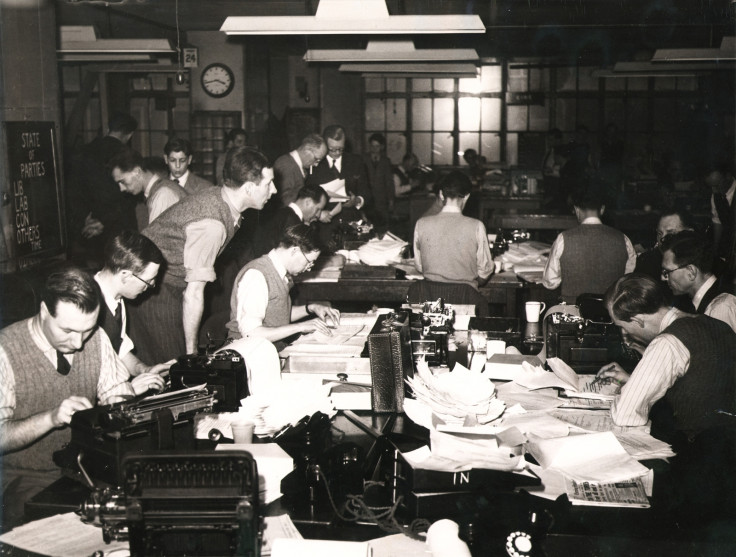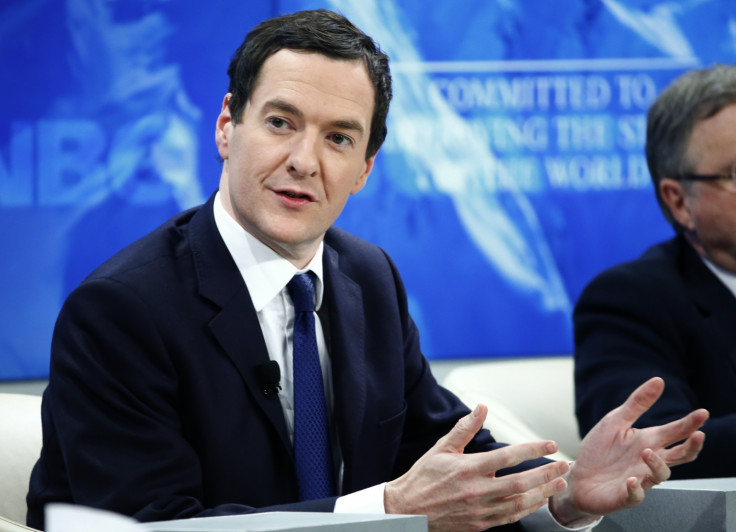Robert Phillips: Davos and dinosaurs, fools and marauders, new clues and chaos
Shortly before Christmas, I found myself in a BBC Radio 4 studio, discussing the relationship between journalism and PR. The subject was a new pamphlet by the FT's John Lloyd, who directs the Reuters Institute for the study of journalism at Oxford.
I remain puzzled as to why Lloyd's publication has any relevance today. It is a decade beyond its sell-by date. It smacks of a tired re-run of arguments that proliferated at the turn of the century, as writers and media owners struggled to understand the disruption of citizen journalism and the internet.
Lloyd's polemic (for that is what it is, despite protestations of independent analysis) flows fundamentally from a journalist's perspective. At times, the author(s) seem to be "writing to headlines" to prove a point. It carries more than an undertone of journalists' historic (and often fully justified) mistrust of public relations - but, somewhat ironically, this is never transparently or explicitly stated.

I can testify that elements in Lloyd's work are factually incorrect and sources have not been fully and fairly identified – odd given the "guardians of truth" defence that Lloyd and his co-writer, Laura Toogood, happily deploy in support of journalism's trusted sword.
We should expect more rigour and less sloppiness from an academic institution.
The bigger issue is that the relationship between journalism and PR is not really an issue at all –merely an incestuous introspection that has long bedevilled both journalism and public relations.
Of greater purpose would be a discussion on the nature and dissemination of public trust and "truth". Real accountability should be to citizens, not to media: to we, the people.
The old world of journalism for many years claimed it held the unique position of speaking truth to power, just as the old world of public relations was happily massaging and manicuring truths, attempting to manage lurking chaos and disorder and suppress the will of the people.
Both were manufactured, imagined realities. The world of old trust (trotted out with tiresome aplomb at Davos last week) was an equally false construct – created and maintained by non-democratic hierarchies and stolen corporate and political power. Today's new world (some call it "the new normal") blows all this apart. It is chaotic, very messy and often unpleasant. But at least it is real.
Few people understand this reality better than Harvard's David Weinberger.
Dinosaurs in the mirror
Many years ago, David and I clashed in a debate in Amsterdam on the future of the media. The traditionalists defending journalism, Weinberger pointed out, were just like dinosaurs staring in the mirror and admiring themselves for being, well, beautiful dinosaurs. In the nostalgia of Lloyd's world, both journalists and PRs would easily qualify in the dinosaur beauty stakes.
Co-author of the seminal Cluetrain Manifesto, it was with Weinberger that I first developed the concept of public engagement as the evolution of public relations. Together, we codified this as bottom-up, social, open, values-led and action-driven: small words that captured bigger meanings. When we conceived the thesis nearly a decade ago, it was clear even then that change was never going to be as slow again.
Regarding change, I was right. Regarding the shift from public relations to public engagement, I was wrong. Public engagement does not go far enough. Communications thinking must evolve towards public leadership (which is activist, co-produced, citizen-centric, society-first) and public value, where organisations become accountable to wise crowds and not to sterile, absolute, competitive measurements.
Organisations such as Barclays Bank or even the Co-Op, still expensively trilling their messages of ethics, values and reform, would do well to take note.

But public leadership, too, will only be transient. The only constant is this state of permanent disruption.
Old-style communications campaigns – seminal projects like the ones that made us believe that "Guinness is good for you" or that shot New Labour to power in 1997 – will never again enjoy the finite endings they once promised leaders, who need to think instead about permanent engagement and the creation of thoughtful spaces and processes that build constant dialogue and presence among multiple conversation and interest groups.
The smart leader is always on and welcomes dissenting, even angry, voices into the conversation.
They do not hide among privilege and peers in the mountaintop luxury of Davos. No one can learn if they do not listen. Any attempt to maintain control ignores the chaos of real people and real lives.
Get a clue
Fifteen years since publication, Cluetrain has been updated with New Clues. It still speaks to the awesome power of networks as the defining agency of change. "It is time," reads the manifesto, "to breathe-in the fire of the Net and transform every institution that would play us for a patsy."
Weinberger warns of those who hijack the internet – "the fools and marauders" – including businesses who merely adopt the internet's trappings without understanding the gravity of its connections and the awesome power of we, the people.
But "we" also need to be protected from ourselves. We can become a dangerous horde. With the stunning power of connectivity comes greater personal responsibility. Unbridled, anyone can tip towards the vile, just as religious absolutism can beget an Inquisition or an Isis.
Loving chaos is essential and real. But we cannot use chaos theory to attack those we don't like, often with unsubstantiated claims or false allegations. Collectively, we need to think hard about the common good; what to do when the crowd is not wise; or when it is dangerously wrong.
This applies in equal measure to the people who once called themselves "communicators" – or even "journalists". It is time for a new responsibility, as well as a new citizenship.
Robert Phillips is the co-founder of Jericho Chambers, a Visiting Professor at Cass Business School and the author of Trust Me, PR Is Dead. You can follow Robert on Twitter @citizenrobert.
Robert's latest book, Trust Me, PR Is Dead has just been published by Unbound.
The updated Cluetrain Manifesto is now available.
© Copyright IBTimes 2024. All rights reserved.






